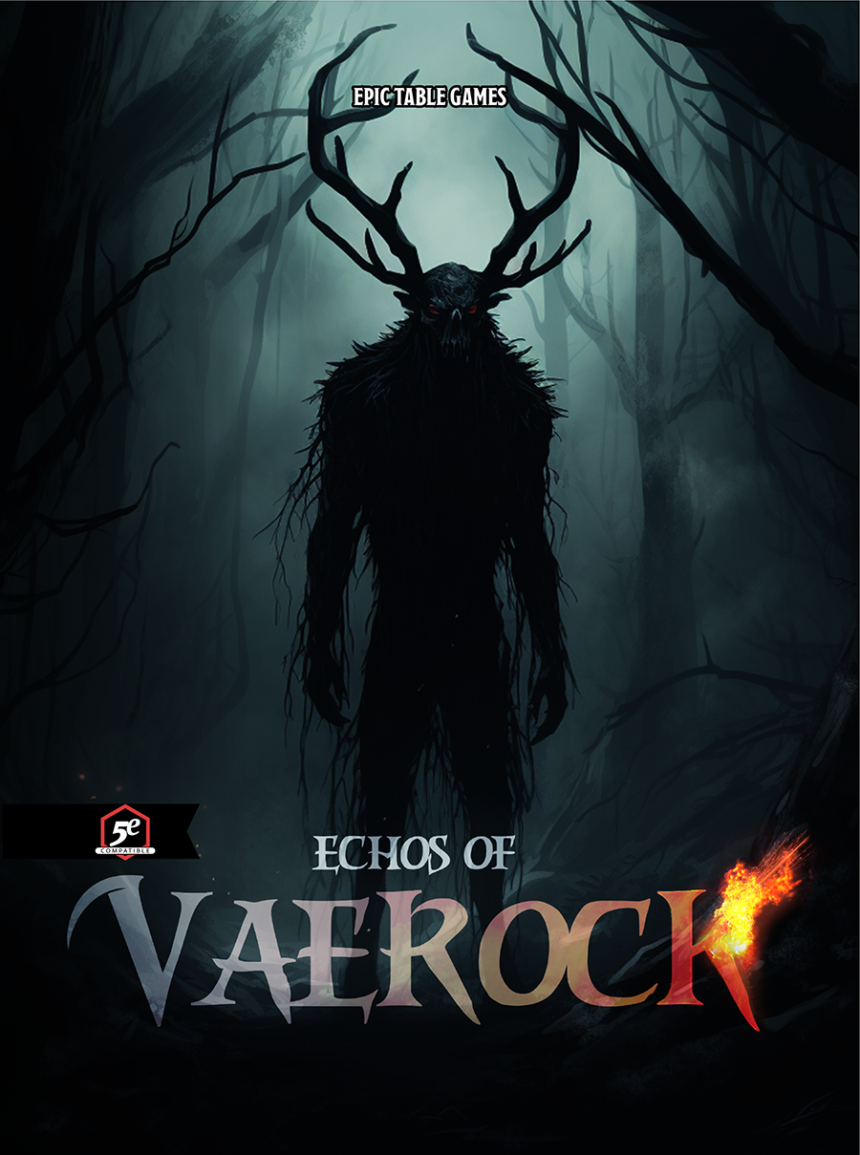Welcome back to your seat at the Epic Table! Back in June, I wrote about this year’s Free RPG Day. One of the items included in the bundle distributed to stores was the fourth volume of Level 1, an anthology of short-form games by indie RPG designers published by 9th Level Games. I mention this now because a couple of weeks ago, this year’s Level 1 was released for free in PDF form.
There are 14 games contained within; over the next two weeks, I’m going to be giving each one a mini-review in this very blog. The games follow a theme of “endings and epilogues,” but how each game designer interprets that prompt varies wildly. In this week alone, we’ll be looking at games around death, healing, sudden ruination, and getting absolutely hammered at a bachelorette party. Let’s dig in!
Front Matters
Normally I discuss formatting and layout a bit in RPG reviews, so let me just take the opportunity to say that there are So. Many. Ads. in this PDF. It’s pretty easy to flip past them, though; the internet has trained all of us to ignore advertising of all kinds. Other than that, the only major complaint I have is that this is a 14-game anthology without a table of contents. That seems like a fairly pressing oversight.
There’s also a discussion in the front of the booklet on tone, game “rating,” and safety tools. Transparency, content warnings, and enthusiastic consent are all specifically addressed. The booklet also includes descriptions of open door policy, lines and veils, cut/brake, the X card, and the O card. The descriptions are short, but give a decent introduction to the topics discussed.
Nothing in here is particularly revolutionary if you’re up to speed with the community views on these. That said, it’s a nice, simple overview for people who might not have encountered the concept (or these specific tools) before. I’m going to tuck this away just in case I need to explain the concept to someone else (and, y’know, haven’t written an article about it here yet).
The games also use some symbols to indicate rating, number of players, if a GM is required, and so forth. These are described in the front matter.
And with that, we’re on to the games!
Hero Catastrophe
Basic concept: you are a Normal Adventuring Group, covered in glory and magic items, when BAM! you get cast into an inescapable magic wilderness that hates you and also all of your stuff is gone. (I can see DMs worldwide salivating at the prospect here.) And that’s a neat concept! But unfortunately, the system doesn’t hold up to it: it’s incomplete. There are a lot of concepts in the rules that simply aren’t explained; Luck points and Harm are a good example. The concept is cool and it looks like there are some neat ideas here—the system of choosing dice to roll versus set desired target numbers is interesting—but it quite literally falls apart upon close inspection.
Filling An Empty Breath
Be careful with this one; it treads on some heavy ground.
FaEB is about death, and loss, and grief. You the players work together to tell the story of a body lying before you… that wasn’t buried right. You need to send it off properly now, or it might rise from the grave and kill you all. This game is designed to hit home: you’re supposed to bring a consumable offering for everyone to share, and physically play it in a location of significance to you all. I love the experimentation here—more games should play with things like this.
With that said, and I don’t mean this as a criticism: I don’t think this is a game. It’s roleplaying, certainly, and it’s powerful. But it’s not something I’d do without deep thought. Do I recommend it? I’m not sure. It’s intense as hell, certainly. You’d need the right group.
Daiquiris and Drunk Girls
Anyway, who’s, like, up for some MOOD WHIPLASH???? 😀
Daiquiris and Drunk Girls is a rules-lite system for roleplaying a bachelorette party. The mechanics are absolutely basic (eyyyy) and are really just an excuse to roleplay drunken shenanigans. And really, that’s what this one is: an excuse. There’s nothing to stop anyone from pretending to be a bachelorette party and making up shenanigans; this game just gives you permission to do it. Is that a criticism? Hell no it isn’t. This game is hilarious and I highly recommend it.
Note that, obviously, it involves some themes of binge drinking and should be considered with care by those that would be affected by them.
Rainbow Bridge
Nope. No. Uh-uh. Not doing it. I am not reviewing the dead dog game. I’m not even reading it. I have no idea if it’s good or not and you people can find out by your own damn selves.
Live Without Warning
Okay, this is a fascinating game. It’s a prompt-generator with a dicepool system of X-keep-1, and mechanically I think the odds pretty much bear it out.
Here’s the thing: you need to play this in a very specific way. That way is to get a bunch of d12s and the major arcana of a tarot deck, pick up the rules, and do not read them through all the way. Instead, continue playing and read along with the rules as you need them. Trust me, there’s a reason.
I think this game can only really be played by a particular person once, but it’s a fascinating game to play. I wish I hadn’t read through it all the way.
Adventurer’s Respite
This is a great game undone by one fatal flaw in the rules.
You are all weary heroes, who have found your way to a magic place to rest. You explore this place together, and as you interact, you are healed… or perhaps the health is sapped from you. Eventually you will leave, or be trapped forever in these fantastic halls.
And that’s the problem: the rules turn on choosing locations, but the process for doing that is never actually described. If you don’t mind figuring that out for yourself (the game is otherwise very complete), this is a thought-provoking look at the work behind recuperating from being weary. And who in this day and age isn’t?
A Necessary Miracle
YOU CAN PLAY THIS GAME WITH A DREIDEL, I INSTANTLY LOVE IT.
ANM is a solo journaling game, which means it’s probably not for everyone. It’s about what happens when you lose something important, and how you get it back. It’s also about needing a miracle and getting one. I don’t know that I’d want to play this more than a couple of times, but I like it. And hey, you can play it with a dreidel.
Leveling Break
That’s all for this week; I’ll be looking at the seven remaining games in the book next week in Part 2. In the meantime, try some of these out! I definitely can recommend a couple, and the rest are worth reading through at least. Some of the design technology used is very interesting and worth it in and of itself. See you next week!
The contents of this post are © 2024 H. Tucker Cobey. All rights reserved.






